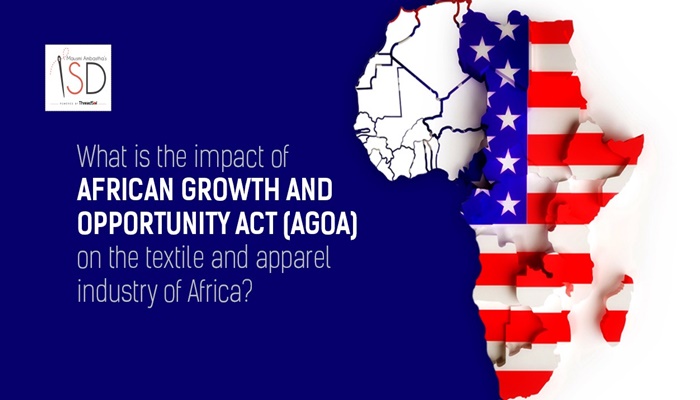Why Nigeria has not taken advantage of AGOA – officIal
Lack of capacity for mass production is a major obstacle to Nigeria’s full utilisation of the African Growth and Opportunity Act (AGOA) initiative, a government official has said.
Mr Babatunde Faleke, the South West Coordinator of Nigerian Export Promotion Council (NEPC), Said this in an interview with newsmen in Abuja on Thursday.
Faleke spoke on the sideline of a one-day sensitisation workshop on “Utilisation of AGOA Visa Stamp” for current and potential garment and apparel exporters to the United States under the scheme.
The News Agency of Nigeria (NAN) reports that AGOA is a legislation of the American government approved by the U.S. Congress in May 2000 aimed at increasing trade between the United States and sub-Saharan Africa.
The Act originally covered the eight-year period from October 2000 to September 2008, but was later extended to 2015 and was later extended by 10 years.
The initiative provides duty-free access to almost 7,000 goods from textiles to agricultural goods to automobile components that countries in the region could export to the U.S.
This has opened the door to large orders by American companies and retailers for goods, especially garment and apparel products from the African countries.
Faleke said that export to the U.S. under AGOA required a mass production capacity to meet not only demands, but also quality.
According to him, most garment producers in Nigeria are used to customized sewing and small-scale production and therefore unable to take advantage of the programme.
Faleke said garment producers in Nigeria were not accustomed to working on large orders with such time constraints and therefore had problems in meeting up.
“The way we operate in the country currently, we don’t have a manufacturing hub that can meet the demands of that market.
“You see people doing two pieces, one piece of garment, but America needs volume.
“For example, Walmart (an American multinational retail company) orders in millions of tonnes. How many garment factories in Nigeria can meet that?
“I know about two to three companies that have gotten orders to supply 600,000 T-shirts, but they cannot meet it,” he said.
The NEPC coordinator advised producers to form clusters and pool their resources together to increase their capacity to effectively deliver orders on schedule.
He also advised that rather than going into many clothing lines, they should focus on one or two where they had comparative advantage.
Faleke said the workshop, organised by NEPC in collaboration with the AGOA Trade Resource Center, was meant to address the lack of public awareness also militating against implementation of the scheme in Nigeria.




